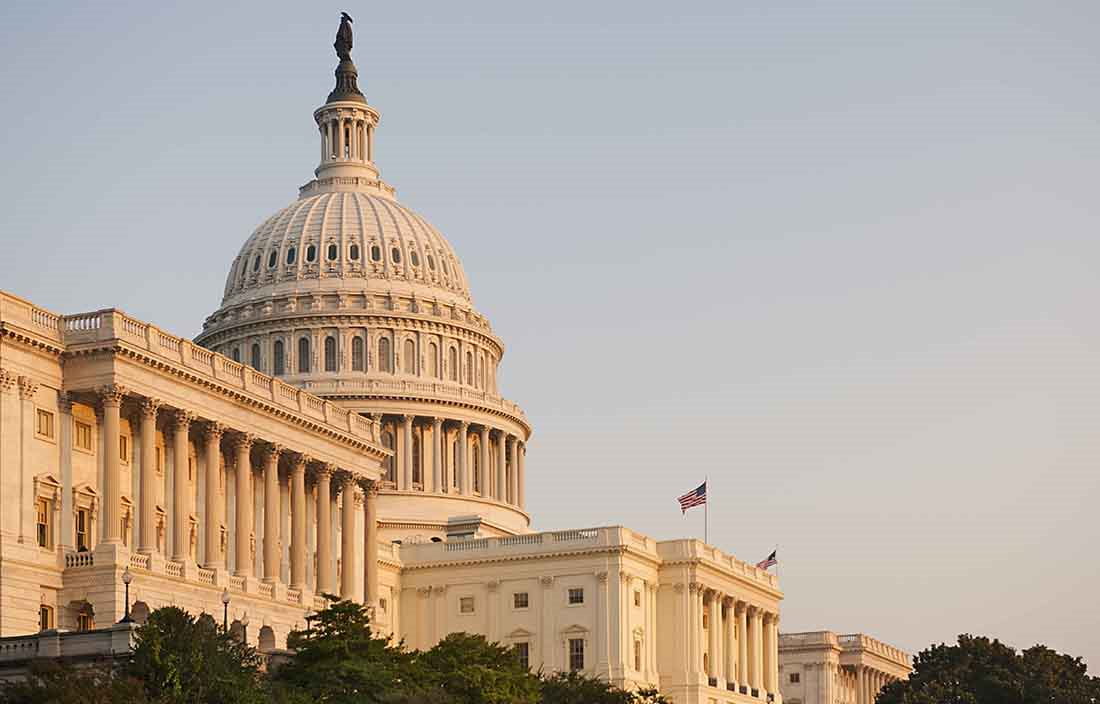PPP loan forgiveness: Beware the hidden tax
Legislative development warning:
This article was published prior to the enactment of the Consolidated Appropriations Act (CAA) on Dec. 27, 2020. That legislation explicitly allows tax deductions for expenses funded with PPP loans irrespective of whether those loans are forgiven. Please see our article covering the CAA for additional details. The IRS subsequently issued Revenue Ruling 2021-2, which made Notice 2020-32 and Revenue Ruling 2020-27 obsolete due to enactment of the CAA.
 The Paycheck Protection Program (PPP) has generated considerable attention and uncertainty during 2020. These loans, administered through the Small Business Administration, were intended to allow employers to retain employees. Employers who use the funds for eligible expenses and meet other qualifications are eligible to apply for forgiveness of up to the full amount of the loan. Some aspects of the tax treatment of loan forgiveness have been defined, but questions about timing persisted. With the recent release of new guidance, taxpayers have reasons to revisit their current year income calculations in connection with PPP loan planning.
The Paycheck Protection Program (PPP) has generated considerable attention and uncertainty during 2020. These loans, administered through the Small Business Administration, were intended to allow employers to retain employees. Employers who use the funds for eligible expenses and meet other qualifications are eligible to apply for forgiveness of up to the full amount of the loan. Some aspects of the tax treatment of loan forgiveness have been defined, but questions about timing persisted. With the recent release of new guidance, taxpayers have reasons to revisit their current year income calculations in connection with PPP loan planning.
Accounting options
The CARES Act provides multiple accounting options for PPP loans. Your approach will depend on whether you expect loan forgiveness, the type of entity receiving the loan, and whether your organization files financial statements with the SEC.
If the PPP loan will be treated as a liability on the books, loan forgiveness ultimately will result in the recognition of book income, but the eligible expenses used to support forgiveness will be expensed. Depending on the facts and book treatment, the income recognition could occur either in the same year as the expense deductions or in the subsequent year.
For tax purposes, loan forgiveness generally will result in the recognition of taxable income, unless an exception is available. However, a taxpayer receiving forgiveness of a PPP loan will not recognize cancellation of debt income when the liability is written off for federal income tax purposes. This is due to the provisions in the CARES Act, which explicitly preclude taxable income recognition upon PPP loan forgiveness.
Subsequent forgiveness
The CARES Act did not address the treatment of eligible PPP expense deductions if the PPP loan is subsequently forgiven. The IRS issued its first PPP loan guidance at the end of April in Notice 2020-32 to address the effect of PPP loan forgiveness on the deductibility of payments of eligible expenses. That guidance concluded that eligible expenses are nondeductible to the extent they support forgiveness of a PPP loan. In reaching that conclusion, the notice stated that excluding taxable income resulting from loan forgiveness creates a “class of exempt income” under Section 265 and the accompanying regulations. On that basis, the expenses funded with the forgiven loan proceeds are not tax-deductible in order to prevent a “double tax benefit.” This may surprise many taxpayers, especially those operating at breakeven or at a loss that doesn’t exceed the forgiven PPP loan amount.
For tax purposes, loan forgiveness generally will result in the recognition of taxable income, unless an exception is available.
Since Notice 2020-32 was issued, questions have been raised about whether deductions would be prohibited in 2020 even if loan forgiveness doesn’t occur until 2021. The IRS recently issued additional guidance in the form of Revenue Ruling 2020-27 and Revenue Procedure 2020-51 that address many of these questions. In expanding on the nondeduction treatment, the revenue ruling clarifies that expenses funded with the PPP loan in 2020 will be nondeductible in 2020 if the taxpayer “reasonably expects” to receive PPP loan forgiveness at any point. The determination of a reasonable expectation is principally based on the use of loan proceeds to pay for eligible expenses and is made irrespective of when the taxpayer actually files for or receives loan forgiveness. The revenue procedure also provides a safe harbor for taxpayers to claim expense deductions in 2020 or 2021 if the loan forgiveness is subsequently denied or not applied for.
With this new guidance, taxpayers may need to consider adjusting remaining quarterly tax estimates or planning for a tax payment on your next tax return filed in 2021. For example, a $1 million PPP loan that is reasonably expected to be forgiven would result in the disallowance of $1.0 million of expense deductions in 2020. That could equate to $320,000 of tax for someone in the 32% tax bracket. While the general deduction disallowance position may have been clarified by Notice 2020-32 in April, many taxpayers may not have anticipated the potential acceleration of this disallowance into 2020 rather than 2021.
State tax considerations
For state tax purposes, each state that implements an income tax has its own revenue code that conforms to some degree to the Internal Revenue Code (IRC). Most states have yet to issue any guidance on whether the forgivable PPP loan proceeds are taxable, or if the federal treatment will be honored at the state level.
Michigan is a “static” conformity state, meaning that it conforms to the IRC as of Jan. 1, 2018, but it also authorizes taxpayers to elect to conform to the IRC in effect for the tax year on an annual basis. Because of this, Michigan taxpayers could elect the federal treatment for the current tax year or by default, include the loan forgiveness as taxable income, and deduct the associated expenses for state tax purposes.
Deciding to apply for PPP loan forgiveness and timing implications
We strongly recommend that taxpayers track expenses paid with PPP funds in separate accounts so that they can be treated properly for tax purposes. Careful consideration should be given when deciding whether to apply for PPP forgiveness versus paying the loan back at favorable terms. Taxpayers should also consider the timing implications for loan forgiveness and expense deductions in both 2020 and 2021.
Taxpayers may need to consider adjusting remaining quarterly tax estimates or planning for a tax payment on your next tax return filed in 2021.
Additionally, taxpayers should consider the terms and conditions for any other federal and state funding received, such as the general distributions received from the Provider Relief Fund, in evaluating the expenditures that would support loan forgiveness. The terms and conditions of these other federal and state programs can’t reimburse an entity’s expenses or losses that have already been reimbursed or recovered from other sources, or that other sources are obligated to reimburse — in other words, no double-counting or double-dipping of expenses.
Concluding thoughts
It’s possible Congress will take action to provide a deduction for expenses paid with PPP loan proceeds where forgiveness occurs while still not taxing the income realized by the forgiveness of the loan. Several senators have stated an intent to pass this type of legislation, and the House already passed this provision in the summer. Currently, it’s difficult to evaluate the likelihood of legislative action, and this uncertainty may lead some taxpayers to place their tax returns on extension to potentially provide time for such a change. That said, taxpayers wishing to wait for a potential change should consider whether to still make estimated tax payments or extension payments based on current law, under which the expenses aren’t deductible, in case Congress takes no further action.




